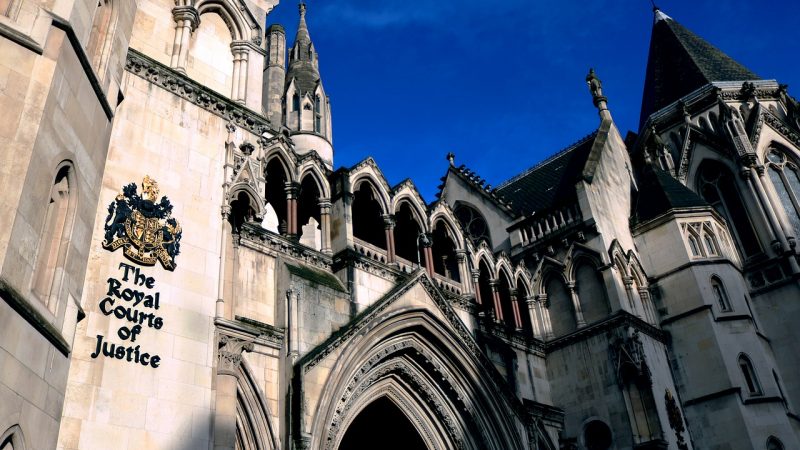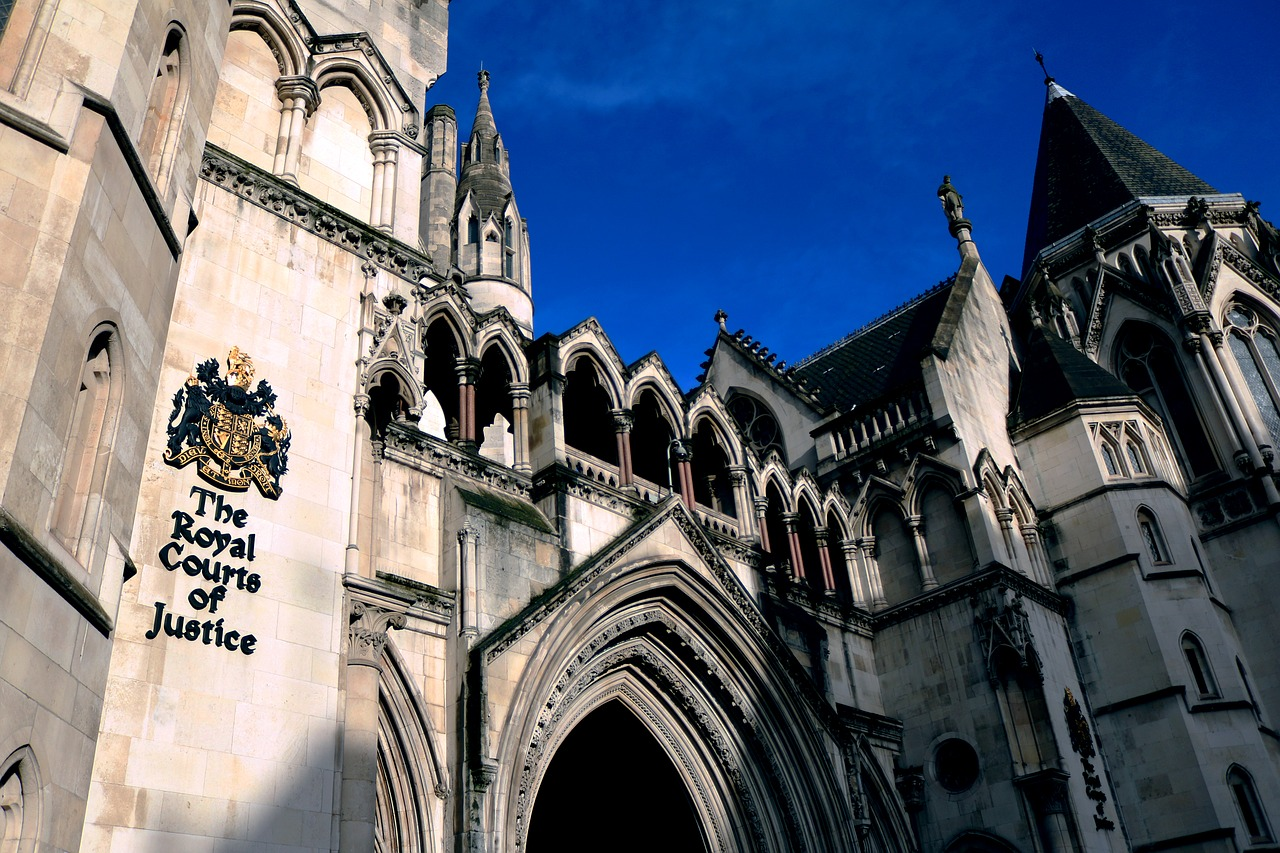Even if people can get access to the courts, at best they will get an interpretation of law, not justice.

Prem Sikka is an Emeritus Professor of Accounting at the University of Essex and the University of Sheffield, a Labour member of the House of Lords, and Contributing Editor at Left Foot Forward.
Whatever happened to the ‘rule of law’ in the UK? We all value the rule of law. It is the foundation stone of democratic, open and peaceful societies. It helps to protect rights, provides stability, accountability, and enables people to flourish. When applied correctly it can limit the arbitrary powers of the state and wealthy elites.
However, all is not well. It is often claimed that everyone is equal before the law. The assumption is that everyone can access timely legal advice and ultimately go to the courts to adjudicate on disputes. Following the Legal Aid, Sentencing and Punishment of Offenders Act 2012 people can’t get legal-aid for many family, employment, housing and debt problems. The number of legal aid cases to help people get the early advice they needed dropped from almost a million in 2009/10 to just 130,000 in 2021/22. The number of advice agencies and law centres doing this important work has fallen by 59%. It is estimated that the number of people helped by legal aid in that period dropped by 4.5 million. Over the same period the number of people having to go to court without representation trebled.
Even if you beg, borrow and sell your possessions, most people can’t get timely access to the courts. There is a backlog of 370,700 cases for magistrates’ courts. The backlog in crown courts, which try the most serious criminal offences, is 71,000. Of course, the rich and powerful can jump the queue and hire lawyers to lie and prosecute innocent people as vividly shown by the Post Office scandal. In this case a giant corporation, with the aid of compliant lawyers, secured criminal convictions of hundreds of innocent postmasters. There can be no equality before the law unless there is equality in access to the law.
In folklore, laws apply equally to all natural and legal persons, but some are more equal than others. The Duchy of Cornwall, an archaic residue of bygone times, enjoys exemptions from paying inheritance tax. It is also exempt from paying corporation tax and capital gains tax even though it trades. This seriously disadvantages its competitors who are required to pay all such taxes. The Duchy of Lancaster also enjoys similar privileges, which are not available to other businesses or citizens.
Even if people can get access to the courts, at best they will get an interpretation of law, not justice. The ‘rule of law’ and justice are not synonymous. Justice is a higher order concept and is concerned with fairness, equity, and respect for others, freedom, equality, human rights, sanctity of life and more. Such concerns are increasingly missing from law-making.
It is hard to recall any mass street marches, petitions or demonstrations urging the government to inflict social harms, but they have. Laws have been enacted to implement austerity, cuts in real wages, benefits, and public services to hand tax cuts for the rich. The result is that over 16m people, including 5.2m children, 9.2m working-age adults and 1.5m pension-age adults live in poverty. Some 6.34 million people in England are waiting for 7.57m hospital appointments. 2.8m people are chronically ill. Around 300,000 people a year die awaiting hospital appointments. A report published earlier this year noted that in the decade after 2011 more than one million people in England died prematurely due to poverty, austerity, and the impact of the Covid-19 pandemic. A recent study reported that 111,000 Britons died last year in poverty; 128,000 people died in fuel poverty, including 111,000 pensioners; and due to laws increasing the state pension age 15,000 died before accessing the state pension.
Hungry children and shivering pensioners are the product of the contemporary rule of law. The two-child benefit cap is the biggest cause of child poverty. The government has withdrawn winter fuel payments from thousands of pensioners living below the poverty line.
Legislators are silenced by the party machine and parliament cannot be relied upon to enact laws beneficial to the masses. Against a background of political populism the Criminal Justice Act 2003 introduced imprisonment for public protection (IPP) or indeterminate prison sentences for minor offences. A person spent 12 years in prison for stealing a mobile phone. A 20 year-old was given eight-month prison sentence for waving an imitation gun, but 18 years later is still in prison. Between 2005 and 2012, the courts imposed 8,711 IPP sentences. As of 31 March 2024, there were 1,180 unreleased IPP prisoners in custody in England and Wales. In addition to these unreleased IPP prisoners, there were 1,616 recalled IPP prisoners in custody on 31 March 2024, bringing the total number of IPP prisoners to 2,796. Over 700 have served more than 10 years longer than their minimum tariff. Such laws are the outcome of political populism which has little regard for the human consequences, and a political system where legislators are pressurised to follow the diktats of the party machine. The Legal Aid, Sentencing and Punishment of Offenders Act 2012 abolished IPP sentences but the abolition did not apply retrospectively to people who had already received such a sentence.
People expect the rule of law to be impartial and fair, but that is not the case. Thousands of unpaid carers looking after disabled, frail or ill relatives are being forced to repay huge sums to the government and threatened with criminal prosecution after unwittingly breaching earnings rules by just a few pounds a week. The same fervour does not apply to corporations and the rich. Since 2010, HMRC admits that it failed to collect over £500bn in taxes though others say it is closer to around £1,400bn. To soothe public anxieties, the government introduced the Criminal Finance Act 2017 and target corporate tax evasion. To date, there hasn’t even been any prosecution. Big accounting firms are the epicentre of a global tax abuse industry. They receive plenty of government contracts, but despite strong court judgments none have been investigated, fined or prosecuted.
In 2022, P&O Ferries sacked 800 staff without any regard for the employment laws, and replaced them with cheaper agency staff. Its chief executive told a parliamentary committee that the company knowingly broke the law. The then Prime Minister Boris Johnson said: “P&O plainly aren’t going to get away with it.” However, the company faced no sanctions from the government.
Regulators act as judges, juries and quasi-courts but their sympathies are with the industry rather than its victims. Just this week, a 350 page report by the All Party Parliament Group on Investment, Fraud and Fairer Financial Services stated that despite mounting evidence the Financial Conduct Authority (FCA) failed to investigate frauds. And it is not the first time. Frauds by HBOS go back to 2002, but are yet to be investigated. The FCA considers £1bn frauds to be a private matter for Lloyds Bank (it acquired HBOS in 2008). Lloyds promised to publish a report in 2018, but no report has been published. The UK state has a long history of covering up banking frauds. For example, in 2012 HSBC was fined $1.9bn in the US after pleading guilty to “criminal conduct” and laundering money. The then Chancellor George Osborne secretly wrote to the US authorities and urged them not to prosecute HSBC as the bank was somehow too big to fail. To this day, there has been no UK investigation, and no statement has been made to parliament.
The insolvency laws protect finance industry and penalise traders, employees and unsecured creditors. The pecking order for distribution of the assets of a bankrupt business is that secured creditors, usually banks, private equity and hedge funds must be paid first. That leaves almost nothing for the remaining creditors. Employee pension schemes rank as an unsecured creditor and people lose their pension rights. Thousands of SMEs and traders are destroyed by the inability to recover anything from a bankrupt client. There is no equity, equality or justice in insolvency laws, and no political party is inclined to challenge the power of finance capital.
The UK has a particular kind of ‘rule of law’. It denies people access to legal advice and access to the courts. Major political parties rarely, if ever, talk about justice, equity, equality or the human cost of the skewed laws. People look to parliament, but parliament is disconnected from the people as the political system primarily serves corporations and the rich, with few crumbs occasionally thrown to the masses.
Parliament plays a complex dual role. The tendency is first to exclude and silence people. For example, women’s demand for vote was denied. Some had to resort to violence to make their case and eventually parliament relented. People have long highlighted the evils of gender and racial discrimination before parliament could be persuaded to act. Similar patterns can be found in the emergence of employment and environmental laws.
To create possibilities of emancipatory change we need to ask questions about whose rule it is, whose law it is and who actually benefits and suffers from it.
To reach hundreds of thousands of new readers we need to grow our donor base substantially.
That’s why in 2024, we are seeking to generate 150 additional regular donors to support Left Foot Forward’s work. We still need another 117 people to donate to hit the target. You can help. Donate today.



